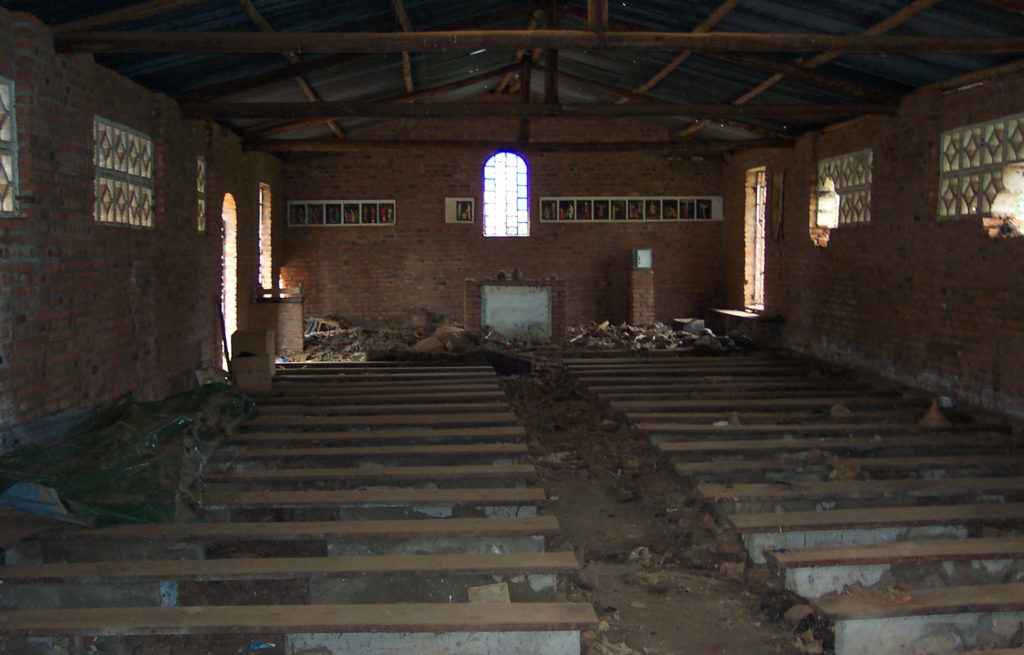
The open wounds 30 years after the Rwandan genocide: “The worst thing is not having been able to bury my brother”
RTVE.es speaks with two survivors of a massacre that opened wounds that are still open.
by Marta King
At only ten years old, Omar Ndizeye saw thousands of people die before his eyes. “Surviving that situation by hiding under corpses and blood is something I will never forget,” he says 30 years after the massacre in Rwanda. One of those bodies that surrounded him was that of his father; He discovered it when the attackers, members of the Interahamwe militia and Rwandan government forces, abandoned the church converted into a cemetery in which a multitude of Tutsis were taking refuge, the persecuted people in what was one of the cruelest episodes of the 20th century. In just 100 days, between April 7 and July 1, 1994, more than 800,000 people were murdered.
“I still remember almost everything, although perhaps what comes to mind the most is the journey to the Nyamata church and everything that happened afterwards,” Omar Ndizeye tells RTVE.es. Now converted into a memorial, the temple that saw dozens of loved ones die in mid-April was only one of the many scenes of a genocide that wiped out approximately 70% of the Tutsi population in Rwanda, although Hutus also died ( the majority population) moderate.
Until then, in previous episodes of violence, attackers had respected sacred sites, so many chose to take refuge in a temple where they believed they would be safe. “They arrived and started throwing grenades into the church. And I was there, sitting among the people, seeing almost everything,” remembers this man now living in the United States. “When they left, I found my father. His spine had been practically cut in two pieces with a machete,” he says.
A year before the genocide, when Eugene Ndagijimana’s primary school teacher asked them before starting class which of them were Hutus and which were Tutsis, the little boy did not know how to answer. “I didn’t know, I just saw that everyone in class spoke the same language and we shared everything,” he assures RTVE.es. “That day I learned that I was Tutsi , there were two or three of us in the classroom, and I remember that the situation got worse since then,” says this Rwandan from Kigali, his current place of residence.
At age 12, Eugene saw his parents and his 13-year-old older brother killed in their own home. “They were murdered in front of me and everything we had was destroyed. I have never felt that pain again,” he says. He and his three-year-old sister survived, but they were left orphans, with no one and nothing, and it was not until a group of nuns from the Fraternity of the Little Sisters of Jesus welcomed them into their orphanage that they once again felt the affection of the which, he says, was his new family.
For the full article please visit here.
